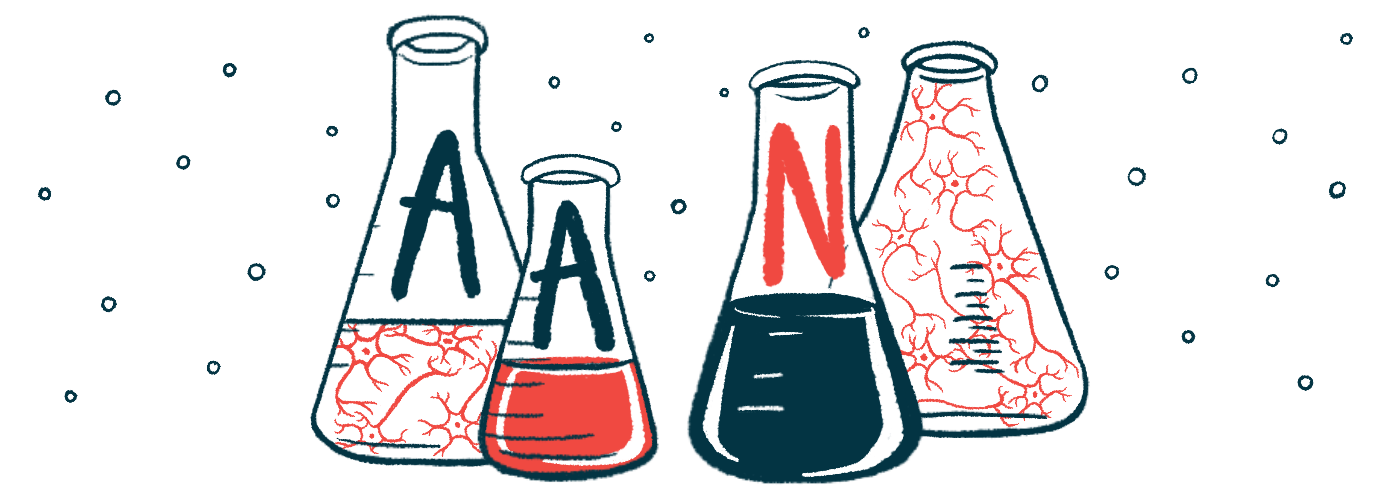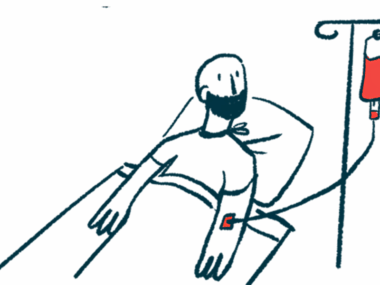AAN 2024: Benefits of Ultomiris sustained for more than 3 years
Ultomiris has potential to improve muscle function, life quality: Alexion
Written by |

Ultomiris (ravulizumab) continues to be well tolerated and to keep symptoms of generalized myasthenia gravis (gMG) under control when used for more than three years, according to a final analysis of data from an open-label extension of the Phase 3 CHAMPION-MG trial.
The data were presented by Tuan Vu, MD, a professor at the University of South Florida in Tampa, at the American Academy of Neurology (AAN) 2024 Annual Meeting, held April 13-18, in Denver, Colorado, and online. The presentation was titled “Long-term Efficacy and Safety of Ravulizumab, a Long-acting Terminal Complement Inhibitor, in Adults with Anti-acetylcholine Receptor Antibody-positive Generalized Myasthenia Gravis: Final Results from the Phase 3 CHAMPION MG Open-label Extension.”
Vu has served as a speaker and advisor for Alexion, AstraZeneca Rare Disease, which markets Ultomiris.
“The final analysis from the CHAMPION-MG open-label extension, presented at AAN 2024, showed improvements in measures of functional activities and quality of life were maintained in Ultomiris-treated patients for up to 164 weeks [roughly three years],” Christophe Hotermans, MD, PhD, a senior vice president at Alexion, said in an emailed statement to Myasthenia Gravis News.
“These data reinforce the safety and efficacy of sustained treatment with Ultomiris in the long-term management of gMG, offering the potential to improve muscle function and preserve quality of life for people living with this rare disease,” added Hotermans, who serves as Alexion’s head of global medical affairs.
Ultomiris targets C5 protein in complement cascade
Ultomiris works by targeting the C5 protein in the complement cascade, a part of the body’s immune system. When activated in an uncontrolled manner, as in gMG, the complement cascade contributes to the damaging effects resulting from the autoimmune attack that drives MG.
The medication, which is infused into the bloodstream every eight weeks after an initial loading dose, is approved in the U.S. for adults with gMG who have antibodies against the acetylcholine receptor (AChR), the most common cause of the disease. These antibodies disrupt nerve-muscle cell communication, leading to MG’s hallmark symptom of muscle weakness.
“Symptoms of gMG, including slurred speech, lack of balance, impaired swallowing, and extreme fatigue, can take an immense toll on patients’ daily lives,” Hotermans said. “Through our ongoing research, we have seen the impact of C5 inhibition in managing this rare neurological disease.”
Ultomiris’s approval in the U.S. was based on safety and efficacy data from CHAMPION-MG (NCT03920293). For the first 26 weeks (roughly six months) of the study, patients were given Ultomiris or a placebo. Patients could then roll over into an open-label extension where all would be given Ultomiris for up to four years or until Ultomiris was approved in their home country.
Final analysis of extension study shows Ultomiris continues to be safe, effective
In line with interim data, the final analysis of the extension study showed Ultomiris continued to be safe and effective over more than three years.
Data came from 161 patients, who were a mean age of 55.9 years and had entered the extension study; 78 had been given Ultomiris in the first part of the study, while the other 83 had been given a placebo. The study had a median duration of 759 days (roughly two years).
Patients who had been given Ultomiris initially maintained gains in their ability to carry out activities of daily living, with a decrease, by a mean of four points from the study’s start to week 164, on the MG Activities of Daily Living (MG-ADL) scale. In this scale, lower scores indicate a lower disease impact on daily functions.
Those who had been assigned to a placebo and then switched to Ultomiris also experienced rapid gains in their ability to carry out activities of daily living, which were sustained over time. In the first two weeks of the open-label extension, MG-ADL scores dropped by a mean of 1.8 points. At the end, they had dropped by a mean of 2.1 points.
Patients who switched to Ultomiris after placebo also responded rapidly
“During the randomized controlled period, patients who were treated with [Ultomiris] responded very rapidly, and when patients in the placebo group got treated [during the open-label extension period], they also responded rapidly,” Vu said during his presentation. “Both groups maintained fairly good efficacy.”
Most patients (88%) were considered to be MG-ADL responders, meaning they had experienced a decrease of at least two points on their MG-ADL total score by week 164. Nearly half (42%) of the responders achieved minimal symptom expression, defined as a score of 0 or 1.
Looking at Quantitative MG scores, a measure of disease severity that takes into account the degree of weakness in several groups of muscles in the body, researchers observed “a very similar pattern where the response [was] quick and sustained,” Vu said, suggesting that Ultomiris continued to ease symptoms for up to at least three years.
At the start of the open-label extension, 112 patients were taking corticosteroids to suppress the immune system. Over time, the proportion of patients taking doses greater than 10 mg/day decreased by more than one-third. At the end of the study, 14 (12%) patients had stopped taking corticosteroids altogether.
In general, Ultomiris was relatively well tolerated, with no reports of meningococcal infections, a potential serious side effect with this type of medication. While 41% of patients experienced treatment-related side effects, they were mainly mild or moderate in severity. Serious side effects related to treatment were reported in 11 patients (6.5%).
In adults with gMG who test positive for anti-AChR antibodies, Ultomiris “demonstrated clinically meaningful sustained improvements in MG symptoms and was well tolerated for up to 164 weeks,” the researchers concluded in an abstract to the oral presentation.






Leave a comment
Fill in the required fields to post. Your email address will not be published.